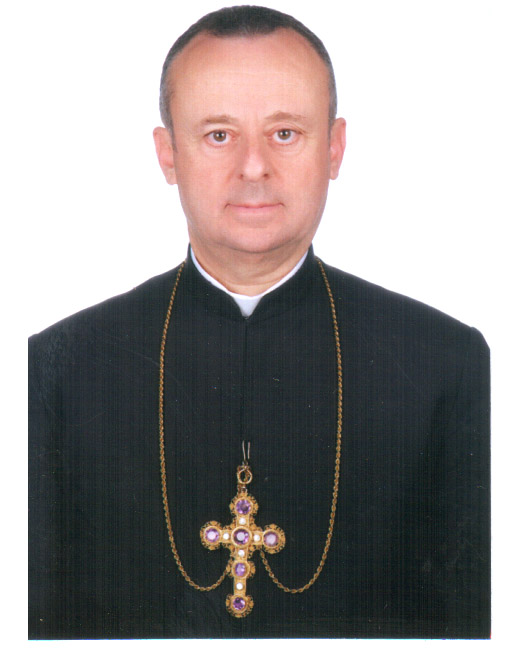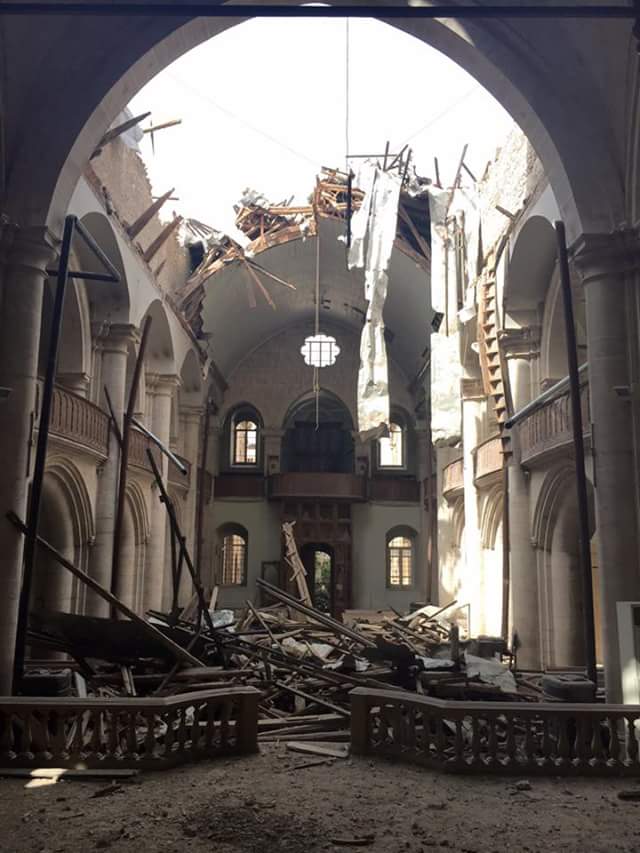|
Aleppo's faithful ask: 'Where is God? Why did God forsake us? Why doesn't He end the war?'
Thursday, November 19, 2015
"Christians in the Middle East are a minority--but their number is not important. What matters is the intrinsic value and power of their existence."
Abbot
Semaan Abou Abdou is Patriarchal (Apostolic) Administrator of the Maronite
Eparchy of Aleppo, Syria. He is a member of the Maronite Order of the Blessed
Virgin Mary, a Lebanon-based congregation with ancient roots in Aleppo.
Syria’s
largest city is hotly contested by both the regime and rebel forces, including
jihadists who often target Christian neighborhoods. On the evening of Oct. 25,
2015, the Roman Catholic Church of St. Francis suffered an attack while 400
people were attending Mass.
Abbot
Abdou spoke with international Catholic charity Aid to the Church in Need Oct.
28, 2015 during a visit to New York.
How
traumatized are your people?
Three words summarize the war in
Syria: killing, displacement, and destruction. There are three existential
questions: When will the war end? Where are we heading? Who is benefiting? Then
there are three questions of faith: Where is God? Why did God forsake us? Why
doesn’t He end the war? Everyone is confused, terrified, and feeling
aimless.

There are shortages of water,
power outages, a lack of fuel, medicine—many doctors have fled the city. Plus,
our churches and many people’s homes have been destroyed. The violence is
causing untold grief. I was deeply affected last March during the funeral
service of a mother and her two young children who had perished in a bombing.
It was a very difficult, emotional scene: here are three coffins in the
church—what could I tell people? Everyone is crying, especially their young
friends. May the Spirit of the Lord console the hearts of those who are
grieving.
What
kind of spiritual strength and resilience is required for ordinary Christians
to cope with the ongoing violence and uncertainty?
We work at both the psychological and spiritual levels: with daily prayers,
Mass, the rosary, celebrating important occasions such as Christmas and New
Year—for the children—and family jubilees, such as 25th and 50th
wedding anniversaries; we organize meals for the community. We hold numerous
meetings that give young people a chance to express their feelings, to pray
together, to discuss topics of war and peace and the vital importance of
acceptance of others—how to live our faith in times of war. We visit the
elderly; we help children in doing their homework and assignments; and we work
with women and housewives, for both spiritual and cultural purposes. The Church
is busy doing all these things as much as the security situation allows.
How
do you and your flock maintain hope?
There is a positive outlook:
Everyone in Aleppo is a potential martyr—in particular Christians who are being
killed simply because they are Christians and do not want to abandon their
faith and their land. Sometimes I can really see that people’s faith is
changing and growing. Their faith is rock solid; they come to church in large
numbers. One can see on the faces of the majority the reflection of an inner happiness
that takes you to the spiritual realm. They are able to thank the Lord with all
their heart; they do not complain despite the persecution, all the distress and
deprivations. There is a smile on their faces. They thank you and appreciate
everything you do for them. My people,
the children included, give me lessons in happiness.
Christians in the Middle East
are a minority—but their number is not important. What matters is the intrinsic
value and power of their existence and the witness of their active presence.

Abbot Abdou; St. Elias Maronite Cathedral in Aleppo, Syria; photos courtesy of Eparchy of Aleppo
|